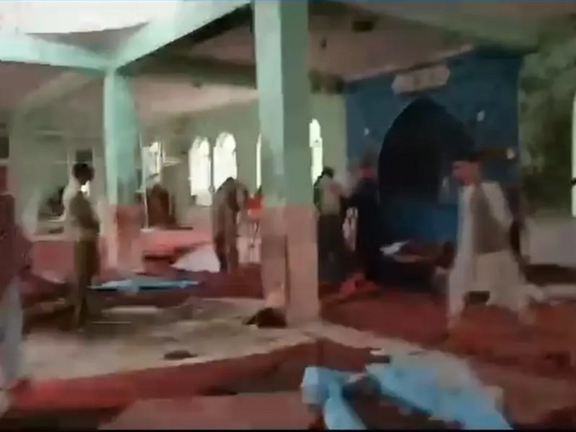ISIS Claims Responsibility For Suicide Attack on Shiite Mosque in Northern Afghanistan

Media reports indicate that ISIS claimed responsibility for Friday's attack on the Imam Zaman Mosque in Pul-e-Khomri city of Baghlan province.

Media reports indicate that ISIS claimed responsibility for Friday's attack on the Imam Zaman Mosque in Pul-e-Khomri city of Baghlan province.
ISIS published a statement on the "Amaq" news website declaring that the attack launched by their affiliate claimed the lives of "dozens" of Shias.
In the statement, the group added that one of their suicide bombers "killed 50 Shias and wounded dozens of others".
Earlier, the Taliban police command in Baghlan had said that at least seven people were killed and 15 were injured in the attack on Imam Zaman Mosque in Pul-e-Khomri city. At the same time, local sources in Pul-e-Khomri told Afghanistan International that the death toll of the explosion is higher than what the Taliban has revealed.
The pictures that reached Afghanistan International from inside the mosque also show bodies of several worshipers.
Over the past few years, religious and cultural places, educational centres, and peaceful gatherings of Afghan Hazaras and Shias have been continuously attacked.
ISIS has claimed responsibility for many of these attacks.
Meanwhile, Richard Bennett, the United Nations Special Rapporteur on Human Rights for Afghanistan, condemned the attack and said that dozens of Shia worshipers were killed in Friday's attack.
While expressing his condolences to the families of the victims of this attack, Bennett called for "prevention, protection, and accountability” for the Shia population in Afghanistan.
On his X social media platform account, he stated that Afghan Shias are still being attacked.
The Taliban announced the deployment of security and intelligence forces to investigate the incident, but did not provide any information regarding the perpetrators or the motive behind the attack.
Pul-e-Khomri city is one of the main centers of Hazaras and Shiites in northern Afghanistan. While the city has not experienced such attacks in recent years, other cities, notably Mazar-e-Sharif, Herat, and especially Kabul, have witnessed a series of attacks targeting Hazaras and Shia community members.